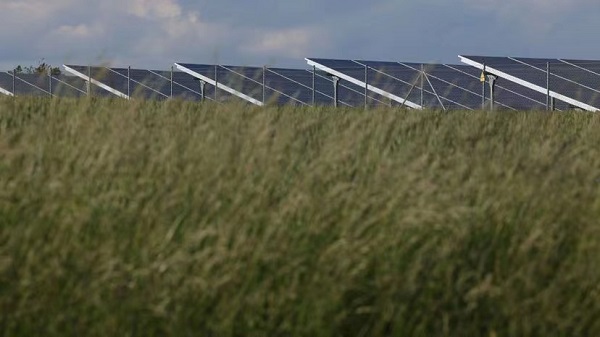U.S. suspends tariffs on Southeast Asian solar panels, renewable energy groups welcomed the move after they said the Commerce Department’s trade probe undermined progress on clean energy.
The United States will allow duty-free imports of solar panel modules from four Southeast Asian countries, providing cost relief for developers of U.S. renewable energy projects. The move is part of a package of measures aimed at boosting the transition to clean energy to stimulate domestic production of solar panel modules.

The U.S. decision
The move temporarily exempts trade barriers to imported solar panel components from Cambodia, Malaysia, Thailand and Vietnam, and the U.S. decision will “temporarily” allow U.S. solar developers to source components and cells from the four Southeast Asian countries that can Certain duties are exempted for 24 months.
The move effectively undercut the threat of a Commerce Department investigation that could lead to higher tariffs on some imported solar panel components.
The investigation, which has received support from some domestic solar PV equipment makers, has faced strong opposition from clean energy developers and other industry supporters, who say it has had a “chilling effect” on the industry and could undermine a Biden administration Efforts to green the national grid.
In May, energy consultancy Rystad Energy said as much as 17.5 gigawatts of solar installations – nearly two-thirds of the total – planned to be installed in 2022 were at risk due to a U.S. Commerce Department investigation.
The American Clean Power Association said Biden’s announcement would “reinvigorate the domestic solar industry that has been devastated by the Commerce Department’s flawed investigation.”
In March of this year, the U.S. Department of Commerce launched an anti-dumping investigation. The complaint comes after Auxin Solar, a small California-based solar panel maker, said Chinese manufacturers were evading export tariffs to the U.S. by assembling solar panels in Southeast Asia.
Solar panels from SEA
Solar panels from Cambodia, Malaysia, Thailand and Vietnam accounted for 85 percent of U.S. imported solar capacity last year, and 99 percent in the first two months of 2022, the data showed.
Some argue that the U.S. reliance on imports of solar panels, critical minerals, metals and components for offshore wind turbines could expose the U.S. to supply chain risks
But other renewable energy developers have complained that government efforts to break that dependence by building domestic supply chains could slow the deployment of clean energy and jeopardize the goal of fully decarbonizing electricity by 2035.
The White House is trying to ease tariffs on imported solar panels, boost domestic component manufacturing, and move the industry’s supply chain back to the U.S. The bill would also apply to building insulation, heat pumps, equipment that makes fuel for clean electricity, and grid transformers



